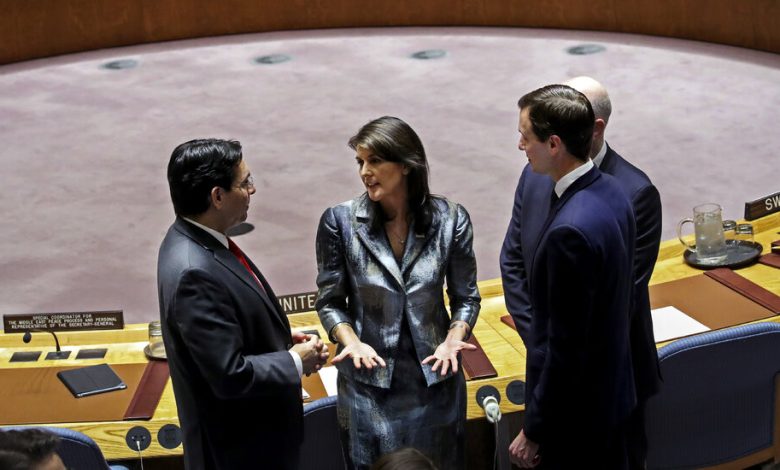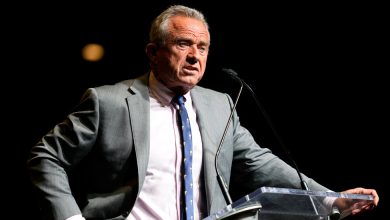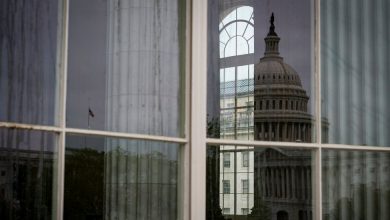Nikki Haley, Israel and the Politics of Diplomacy

In January 2017, Danny Danon, Israel’s ambassador to the United Nations, received a phone call from Nikki Haley, the former governor of South Carolina and Donald Trump’s newly appointed ambassador to the United Nations.
Ms. Haley wanted to apologize.
A month earlier, the U.N. Security Council had passed a resolution condemning Israel for building settlements in the West Bank. The Obama administration, by abstaining from the vote, had allowed the measure to pass, a parting rebuke to Benjamin Netanyahu, Israel’s increasingly right-wing prime minister.
In her first phone call to a fellow ambassador, Ms. Haley wanted to be clear that things would be different.
“She guaranteed that it would not happen as long as she was serving as ambassador,” Mr. Danon recalled recently, “that she would get our back and support us.”
That promise would set the tone for much of Ms. Haley’s time at the U.N. Over her nearly two-year tenure, she transformed herself from a foreign policy novice to a blunt-talking stateswoman, making the defense of Israel her defining cause.
Ms. Haley blocked a Palestinian envoy’s appointment and took credit for forcing the withdrawal of a report that described the Israeli government’s treatment of Palestinians as “apartheid.” She walked out of a Security Council meeting during a Palestinian official’s speech and criticized the U.N.’s Palestinian refugee aid program, which she has since said “uses American money to feed Palestinian hatred of the Jewish state.”
She was an enthusiastic face of the Trump administration’s diplomatic largess toward Israel, and described herself as turning back the tide of “Israel-bashing” at the world body.
Denizens of the U.N.’s New York headquarters began joking that Israel now had two ambassadors.
American ambassadors have generally stood with Israel at the U.N., but observers of Ms. Haley’s time there saw something new in her often confrontational advocacy for the Trump administration’s no-questions support for Mr. Netanyahu’s government.
Critics have noted the political convenience of her approach — which ingratiated her with Mr. Trump’s inner circle and cemented relationships with major Republican donors and evangelical leaders — as well as its made-for-television tenor.
“I wear heels,” she told the audience at an American Israel Public Affairs Committee conference in 2017. “It’s not for a fashion statement. It’s because if I see something wrong, we’re going to kick them every single time.” A clip of the statement appeared in a video teasing her presidential campaign early this year.
“There was always a clear distinction between her relatively pragmatic approach to most issues and an incredibly performative, purist approach to diplomacy regarding Israel,” said Richard Gowan, the U.N. director of the International Crisis Group.
As Israel plunges into a new war in the Gaza Strip, after a stunning wave of attacks by Hamas fighters, this chapter of Ms. Haley’s career has taken on a sudden importance.
Ms. Haley, one of the few candidates with a foreign policy record to run on, has cast herself as an unwavering Israel hawk whose views aregrounded in experience. Last weekend, Ms. Haley urged Mr. Netanyahu to “finish” Hamas. During an appearance on “Meet the Press,” she recalled her 2017 visit to Hamas-dug tunnels near the Gaza border.
When Mr. Trump criticized Mr. Netanyahu — who angered him by recognizing Joseph R. Biden’s victory in 2020 — Ms. Haley used the moment to reinforce her case against her former boss.
“To go and criticize the head of a country who just saw massive bloodshed — no, that’s not what we need in a president,” she said at a news conference in Concord, N.H., on Friday.
Ms. Haley, who declined to comment for this article, has seen a recent uptick in polling, although she continues to run far behind Mr. Trump. As a new conflict pushes world affairs to the foreground of the campaign, this may be her best chance to emerge as the leading Republican alternative to the former president.
“This was always political capital that she was banking while she was at the U.N.,” Mr. Gowan said. “And it may pay off for her now.”
A Keen Eye for Set Pieces

“I wear heels,” Ms. Haley told an audience of staunch Israel supporters at the meeting of the American Israel Public Affairs Committee conference in 2017. “It’s not for a fashion statement. It’s because if I see something wrong we’re going to kick them every single time.”Credit…Pete Marovich/European Pressphoto Agency
In interviews, close observers of Ms. Haley’s work — veterans of the U.S. Mission to the United Nations, the Trump White House and State Department, United Nations officials, and foreign policy lobbyists and experts — described it in similar terms.
They recalled a diplomat who quickly became a more pragmatic negotiator than her own accounts of her tenure, which tend to focus on her confrontations, suggested. They also remembered her as a politician: someone who understood the United Nations post as a stopover on a trajectory toward bigger things.
Ms. Haley was not enamored with the minutiae of diplomacy. She requested that staff cut down background papers to a single page of talking points, written in “eighth-grade English.” In her first address to her new employees, the ambassador told them she wanted to create a humane and efficient office culture, insisting that nobody’s work should keep them at the office after 6 p.m. — a tall order for an institution where meetings often ran into the evening, and diplomatic crises at unusual hours were practically a daily event.
Ms. Haley also had a keen eye for what one former mission staff member described as “set pieces”: the confrontations and dramatic gestures that would gain attention.
The first such moment for Ms. Haley arrived only days into her tenure. In early February 2017, António Guterres, the U.N. secretary general, was preparing to name Salam Fayyad, the former prime minister of the Palestinian Authority, as the U.N.’s special envoy to Libya. Mr. Fayyad was a well-regarded reformer who had been seen as a key Palestinian partner for both the United States and Israel. Mr. Guterres had received informal signoffs from the Security Council members. His office had prepared a news release.
But half an hour before the deadline for objections, Ms. Haley informed him that she considered Mr. Fayyad unacceptable.
“We thought that this must be a mistake,” said Jeffrey Feltman, an American diplomat who at the time was Mr. Guterres’s under secretary general for political affairs. The appointment had been vetted, and State Department officials had vouched for Mr. Fayyad, he said.
The decision had been Ms. Haley’s, her staff has since said, though Mr. Trump approved it. In a statement at the time, she argued that appointing a Palestinian to a significant U.N. position would be tantamount to recognizing Palestinian statehood. “The United States does not currently recognize a Palestinian state or support the signal this appointment would send within the United Nations,” she said.
“Essentially, she punished Salam Fayyad for his nationality, at the same time she was criticizing the U.N. for punishing Israelis for their nationality,” Mr. Feltman said. “It seemed to me to be quite hypocritical.”
Speaking before an audience of Israel supporters at the AIPAC conference the following month, Ms. Haley cast the move more provocatively, taking credit for having Mr. Fayyad “booted out” of the U.N. post, and portraying the decision as a response to a culture of “Israel-bashing” at the organization. She announced that unless things changed, “there are no freebies for the Palestinian Authority anymore.”
The Trump Translator at the U.N.
Before arriving at the U.N., Ms. Haley had a scant record on Israel policy. She has described her support for the country as “a matter of faith” — raised Sikh, she later converted to Christianity — and compared her own cultural background as the child of Indian immigrants to that of Israelis’. “We’re aggressive, we’re stubborn and we don’t back down from a fight,” she said in 2017.
Her main claim was that as the governor of South Carolina, she signed a bill in 2015 banning the state from doing business with companies that boycotted or divested from Israel.
Such laws — South Carolina’s was the second, after Illinois — had that year become a focus of pro-Israel political donors, including Sheldon Adelson, the Las Vegas casino magnate and backer of the Republican Jewish Coalition, who wielded enormous influence in the G.O.P. and in Israel before his death in 2021.
Ms. Haley’s campaign said the she did not discuss the issue with Mr. Adelson at the time. In 2016, Mr. Adelson contributed $250,000 to Ms. Haley’s political action committee — a quarter of the contributions it received that year — and hosted her in his luxury box at the Republican National Convention in Cleveland.
Arriving at the United Nations six months later, Ms. Haley quickly became the face of Mr. Trump’s Middle East policy, which reflected the long-held aims of pro-Israel hard-liners as well as conservative evangelicals, who ascribe great theological importance to the rise of a modern Jewish state in the Holy Land.
“There’s been a historic tension between Zionism and a belief that the United States had an obligation to be an honest broker between Israel and the Palestinians,” said Ralph Reed, the chairman of the Faith and Freedom Coalition. “Under Trump, we moved on, and now the G.O.P. tilts unapologetically pro-Israel.”
Ms. Haley leaned into her role at the U.N. as the public defender of the administration’s pullout from the Iran nuclear deal, its support for expanding West Bank settlements and its decision to move the U.S. Embassy in Israel to Jerusalem from Tel Aviv.
After the U.N. General Assembly passed a resolution condemning the embassy move, Ms. Haley hosted a reception at the U.S. Mission, refusing to invite the 21 countries — including longtime American allies like Britain, France, Germany and Japan — who voted for the measure.
“The United States will remember this day,” she warned.
Some who watched her work up close detected less absolutism in her views, and her diplomacy, than she presented at the General Assembly and in interviews.
Nickolay Mladenov, the U.N.’s special coordinator for the Middle East peace process at the time, recalled traveling in Israel to the Gaza border with Ms. Haley. “I think that trip really opened her eyes to the fact that there are two competing narratives, two competing realities in this situation,” he said.
“Whatever the public speeches she made,” he added, “when we sat down to talk, she would say, ‘OK, what can we do about this?’”
Palestinian supporters, however, saw a rhetorical escalation, even by the standards of a resolutely pro-Israel Republican Party.
“You look at some of her statements and actions, it was comically over the top — not just willingness to support Israel, but a willingness to hurt Palestinians,” said Yousef Munayyer, who directs the Palestine/Israel Program at the Arab Center Washington D.C.
Her public performances served her well in the often vicious internal politics of the administration. Amid a divide between foreign policy traditionalists — the long-résuméd appointees often cast as the “adults in the room” — and the coterie of Trump confidants who largely drove his Middle East policy, Ms. Haley aligned herself with the latter group.
Her Israel advocacy gave her common cause with Jared Kushner, the president’s son-in-law, who had been tasked with the Middle East policy portfolio.
When Mr. Kushner and others began drafting the White House’s Middle East peace plan, Ms. Haley was one of only a handful of policymakers allowed to see it and offer comments, said Jason Greenblatt, Mr. Trump’s special envoy for Middle East peace.
“I thought she was one of my most important allies,” he said.
Spending Political Capital
Ms. Haley’s work also won accolades from evangelicals and Jewish Republican donors, key constituencies for any aspiring Republican president. Her U.N. tenure was covered closely by the Christian Broadcasting Network, the evangelical-oriented media company.
“Clearly God is using Nikki Haley for such a time as this,” the network’s anchor, David Brody, said in a June 2017 segment, over footage of Ms. Haley praying at the Western Wall in Jerusalem.
In 2018, Christians United for Israel, the influential Christian Zionist organization led by the televangelist John C. Hagee, presented Ms. Haley with the organization’s Defender of Israel award. As she neared the end of her speech, someone in the crowd yelled: “Haley 2024!”
But early polling has shown that Mr. Haley is struggling to peel away evangelical voters from Mr. Trump. Although Mr. Hagee offered a prayer at her campaign launch event, he has not endorsed her.
“Most evangelicals certainly appreciate Nikki Haley’s pro-Israel stance,” said Robert Jeffress, the influential pastor of the First Baptist Dallas megachurch. “But evangelicals also realize that her pro-Israel policy while she was U.N. ambassador was a reflection of Donald Trump’s pro-Israel position.”
Among prominent Jewish Republican donors, she has more vocal allies. Toward the end of Ms. Haley’s time at the U.N., Fred Zeidman, a Texas businessman, made her a promise. “I told her if she ever wanted to run for president of the United States, I was going to be with her from Day 1,” recalled Mr. Zeidman, who served as Jewish outreach director for the presidential campaigns of Mitt Romney, John McCain and George W. Bush.
In March, Mr. Zeidman and two like-minded donors, Phil Rosen and Cheryl Halpern, wrote to the members of the Republican Jewish Coalition urging them to back Haley, citing her U.N. record.
But a majority of the group’s benefactors have not yet contributed to any candidate. “They don’t see any reason to actively give when you’ve got nine people out there,” Mr. Zeidman said.
Mr. Zeidman and other Haley supporters hope that Republicans seeking an alternative to Mr. Trump will coalesce behind her candidacy. But despite Ms. Haley’s recent signs of momentum, the gulf between her and Mr. Trump remains daunting.
“If she would’ve run in Israel,” Mr. Danon, the former Israeli ambassador, said, “I’m sure it would’ve been much easier for her.”




